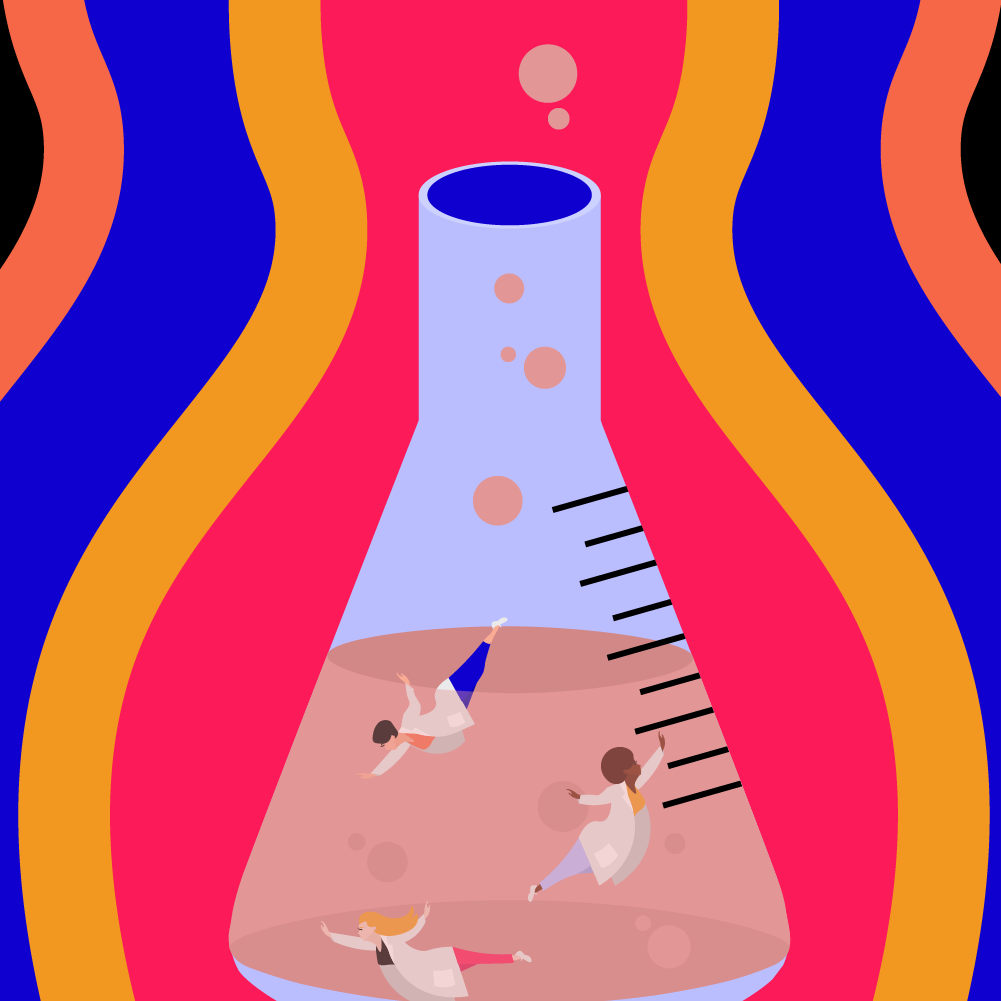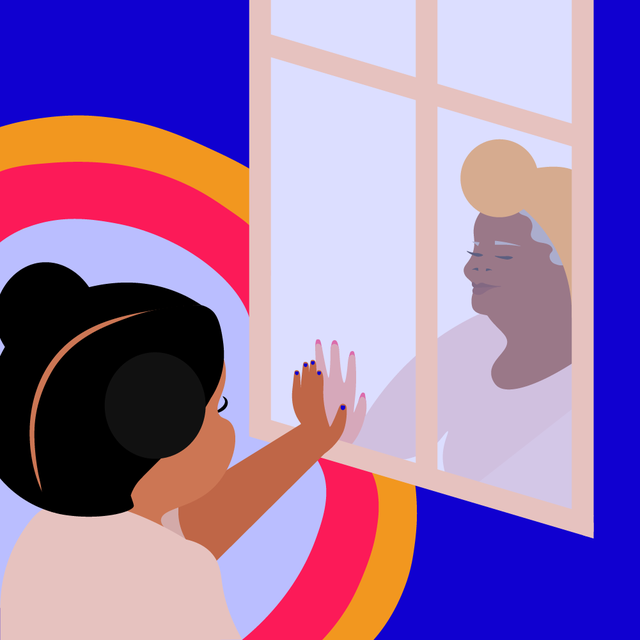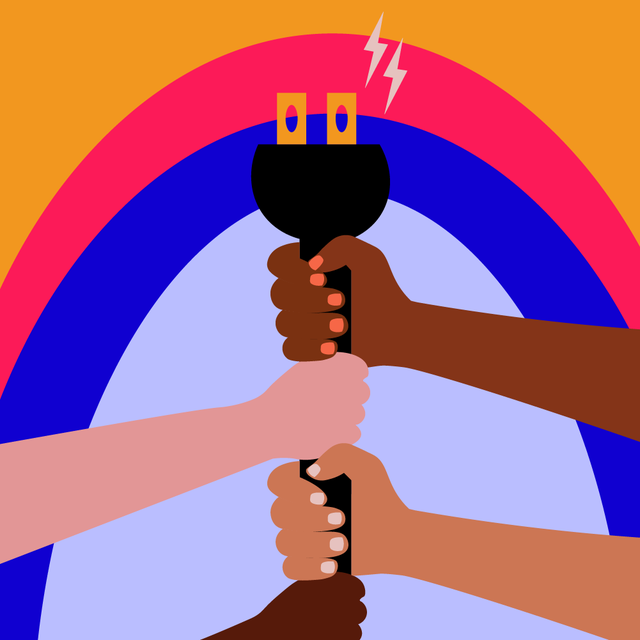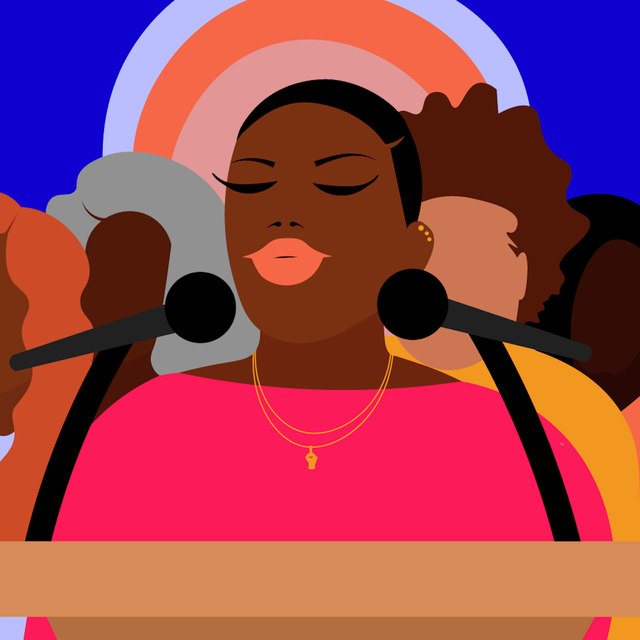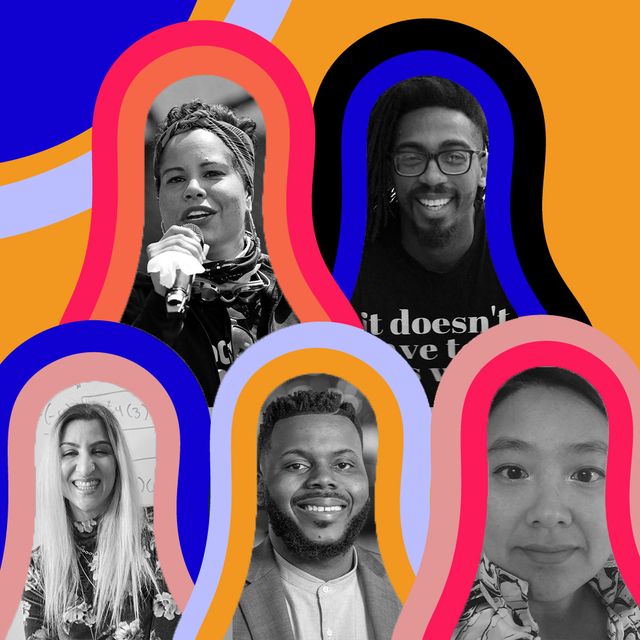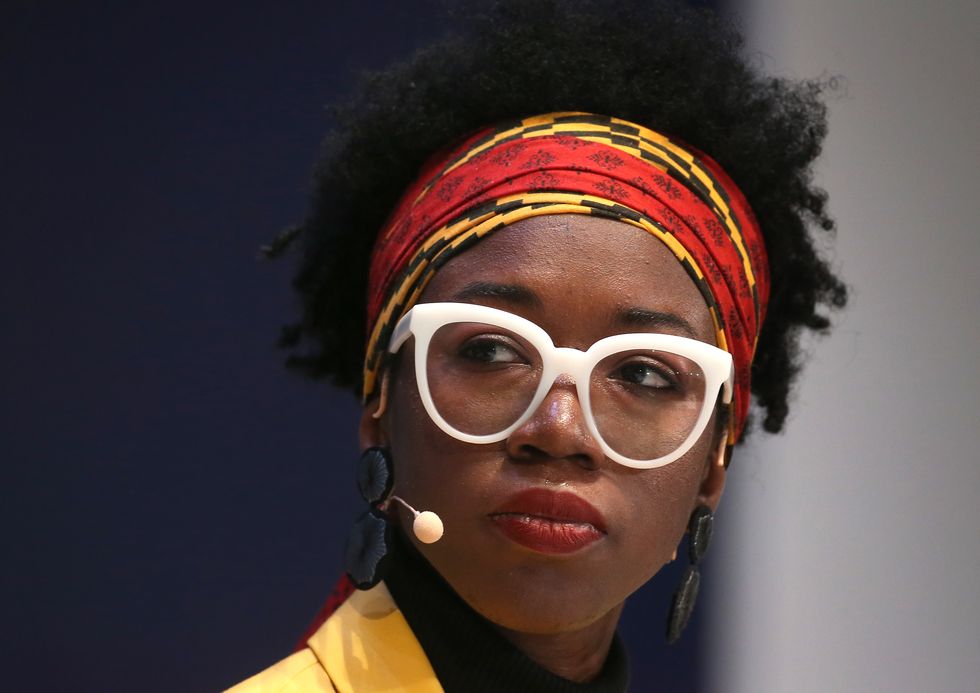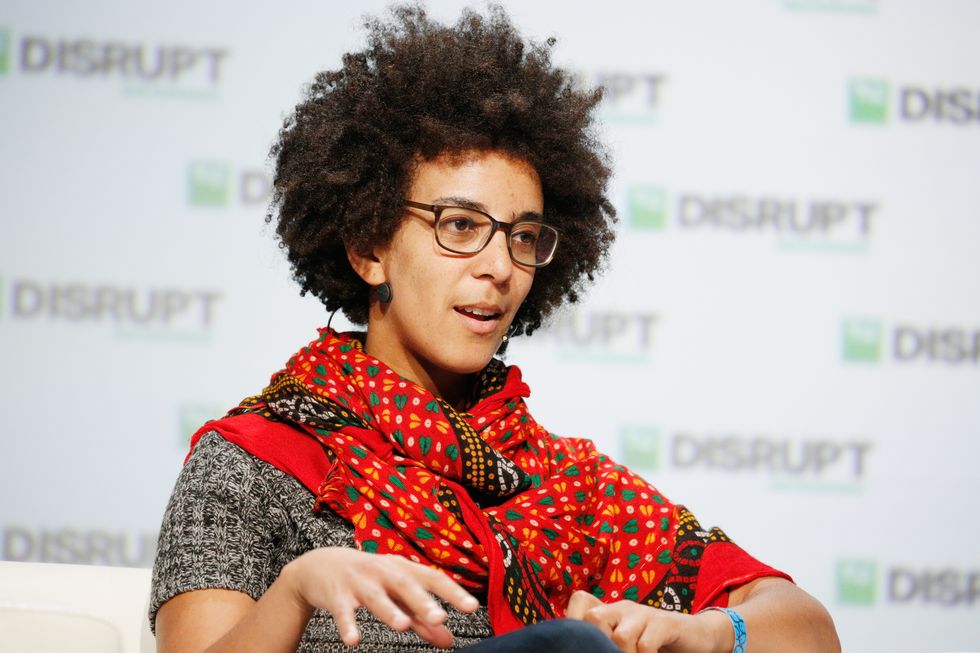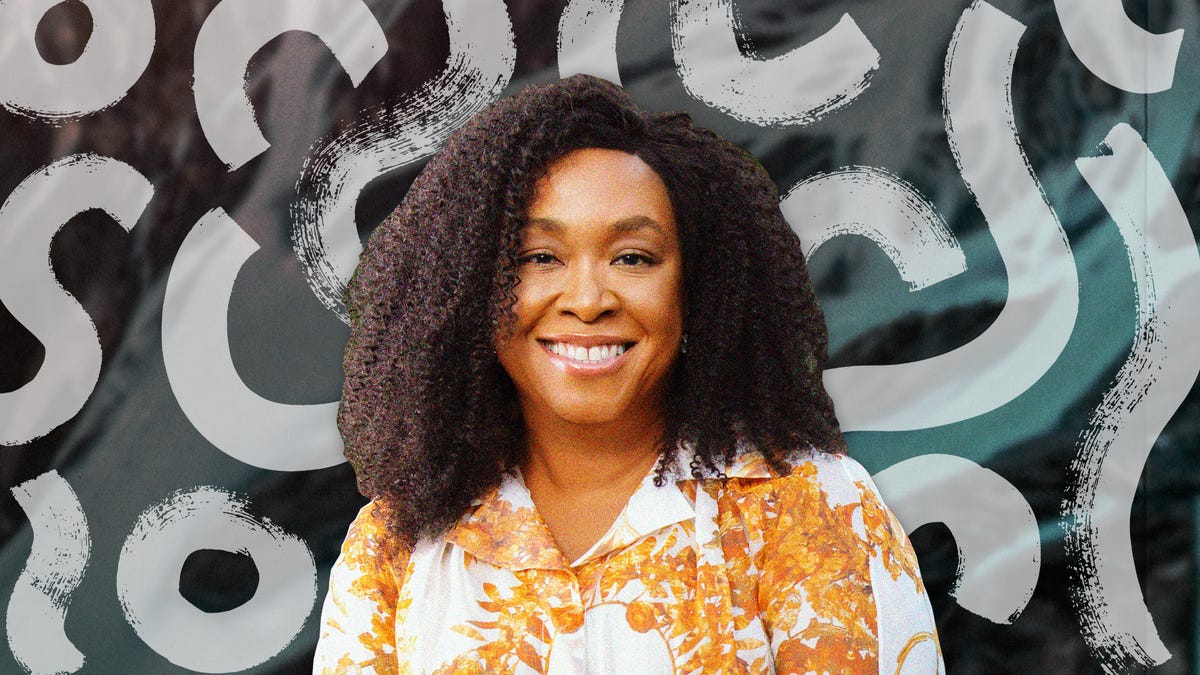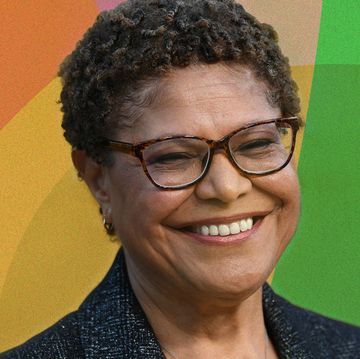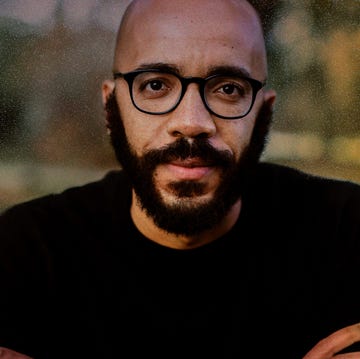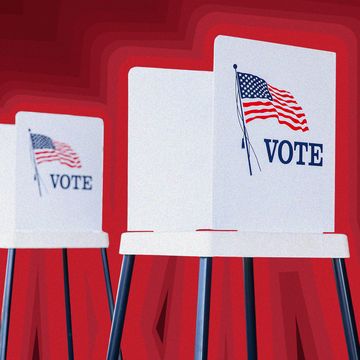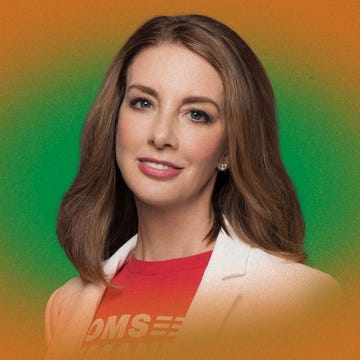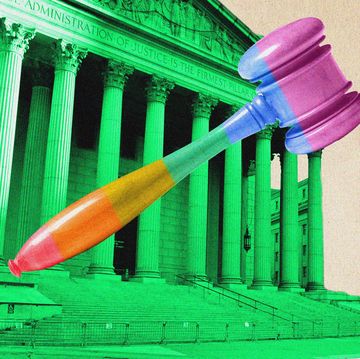With collective groups coming together en masse, online and in real life, we're seeing norms being shattered as we progress forward. So we’re bringing you a series of stories that illuminate and celebrate collective power in action and how it's reshaping our world.
Science is the ultimate collective enterprise — every discovery is built upon thousands of earlier discoveries and the efforts of countless people. Though women are leading scientific discovery and research across multiple scientific disciplines, their efforts often remain unseen. But that’s starting to change as women continue to tackle urgent, much-publicized global problems.
Look no further than the Moderna Covid vaccine, an undertaking that required expertise in scientific disciplines and that was created across continents. Dr. Kizzmekia Corbett, an immunologist at the U.S. National Institutes of Health (NIH), is a scientist who helped design the vaccine and led the clinical studies. Now, she is now reaching out to communities of color to make it easier for people to get vaccinated.
More on Power
Women scientists are not only pushing the frontiers of science, but also fighting for equity and justice. Joy Buolamwini and Dr. Timnit Gebru are both well-known computer scientists and ethics researchers who bring their lived experiences as Black women to inform their work on identifying and eliminating racial biases in AI facial recognition algorithms. Eliminating these biases will lead to less prejudice and racism within the criminal justice system.
Gebru recently co-authored a paper demonstrating the significantly reduced efficacy of facial recognition for women and people of color. She also helped show that large-scale AI-generated language processing models have huge financial costs, high carbon emissions, and are based on text from the richest and mostly English-speaking countries, not representative of the majority of the planet’s population. Such algorithms and models can be harmful, especially for communities of color. Joy and Timnit’s research spurred IBM, Microsoft, and Amazon to place a moratorium on selling their facial recognition technology to law enforcement.
Women scientists are also at the forefront of transforming how we think about and implement climate solutions. Dr. Ayana Elizabeth Johnson and Dr. Katharine Wilkinson co-edited All We Can Save, an anthology of poetry and essays authored by women who are leading on climate. Bringing together a mighty chorus of climate champions, from scientists to policy wonks, journalists, activists, artists, and changemakers, the book is a masterclass in weaving heart and storytelling with science and policy to reimagine what solutions to the climate crisis can look like when they are enacted by women.
Why haven’t women scientists garnered more attention?
Changing the face of science is about giving credit where credit’s due. Wikipedia is the fifth most accessed website on the internet, a living encyclopedia that is created and edited by volunteers — somewhere between 84 to 91 percent of whom are men. But less than 20 percent of Wikipedia entries in English are about women and their accomplishments and contributions, in any field (not just science).
Dr. Jess Wade has galvanized an effort to change that by creating and editing Wikipedia pages for women and other underrepresented scientists. Wiki Education amplified these efforts with 500 Wiki Women Scientists, a program to train scientists to improve and create pages that celebrate the achievements of women and gender minorities in STEMM (science, technology, engineering, math, and medicine). Once trained, these scientists host Wikipedia edit-a-thons, creating and improving thousands of pages.
Another reason women don’t get a lot of recognition is that they aren’t asked to speak on panels at scientific conferences as often as men are. There’s a term for these all-male panels: “Manels.” We know that women experts exist (we are those experts), but somehow people don’t know how to find us. So three women scientists — Dr. Liz McCullagh, Dr. Kate Nowak, and Dr. Jane Zelikova — got together in 2018 to create Gage, a multidisciplinary database of 14,000+ women and nonbinary scientists so that anyone — from conference organizers to educators to members of the media — can easily find a woman expert.
Closing the wage gap
To change the culture of science and close the pay equity gap, we must change institutional norms and make it easy to seek and pay all scientists what they’re worth. Women make 83 cents to the dollar a man makes and that gap increases for Black, Latinx, and Native women. An effort led by 500 Women in Science is underway to help STEM professionals, especially those from underrepresented groups, to seek compensation when they are asked to speak on a panel, or when they are asked to conduct a workshop based on their expertise.
Removing barriers to entry for women of color
We are never just scientists. From personal experience, we know that women of color in STEM face compounded barriers. There are many efforts underway to alleviate these barriers, from SisterSTEM, to GeoLatinas and the 500 Women Scientists’ Fellowship for the Future. Too often, women of color are expected to mentor and lead outreach projects, particularly those aimed towards those in their communities, without compensation for the physical and emotional labor that doing so takes. And the time taken away from scientific research to work on community-based efforts can potentially be detrimental to careers or minimized as “distractions.”
The Fellowship for the Future pays women of color for their labor and amplifies their work by providing notability that benefits their science careers. This fellowship was created by and is designed for women of color, ensuring that solutions are created by and for the people they intend to serve. Similarly, Operation Restoration led by Syrita Steib was created by and designed for formerly incarcerated women to offer them pathways into STEM education and training, and also to build community among these women.
There is immense power in collective action, and the act of coming together as women is in and of itself powerful.
To grow that power, 500 Women Scientists has built a massive global network of 500+ chapters and thousands of women and gender minority scientists. Local chapters engage with their communities, help support each other through networking and mentorship, and mobilize to advocate for equity and inclusion in science. In 2020, during the height of the global pandemic, these chapters organized 40+ virtual film screenings of the films Picture a Scientist and Storm the Gates, reaching over 3,500 people around the world and organizing letter-writing campaigns that reached 3,000+ voters ahead of the 2020 U.S. presidential election.
There is not only strength in numbers, but brilliance in team efforts. Mothers in Science, an organization that pushes for policy change to eliminate pay and opportunity discrimination among scientists who are mothers, is coordinating a collaboration across many women-led organizations to highlight career penalties women scientists face for having children. This “mom penalty” has only been exacerbated during the pandemic.
Globally, women scientists are leading efforts to fundamentally transform science, from the discoveries we make to how they are implemented to help society. Our collective power comes from merging our scientific expertise and our lived experiences to solve urgent global problems that only science can solve. And sometimes, our power comes from simply coming together, celebrating each other’s wins, and supporting each other through losses. Joy and friendship are the fuel for our science and activism.
Jane Zelikova is a climate change scientist at the University of Wyoming, working at the intersection of science and policy.
Lauren Edwards is a trained neuroscientist who now serves as the interim executive director of 500 Women Scientists.
Wendy Bohon is a geologist who studies earthquakes and works to improve the communication of hazard and risk.
Maryam Zaringhalam is a molecular biologist by training who now works in science policy, communication, and advocacy.
Get Shondaland directly in your inbox: SUBSCRIBE TODAY
